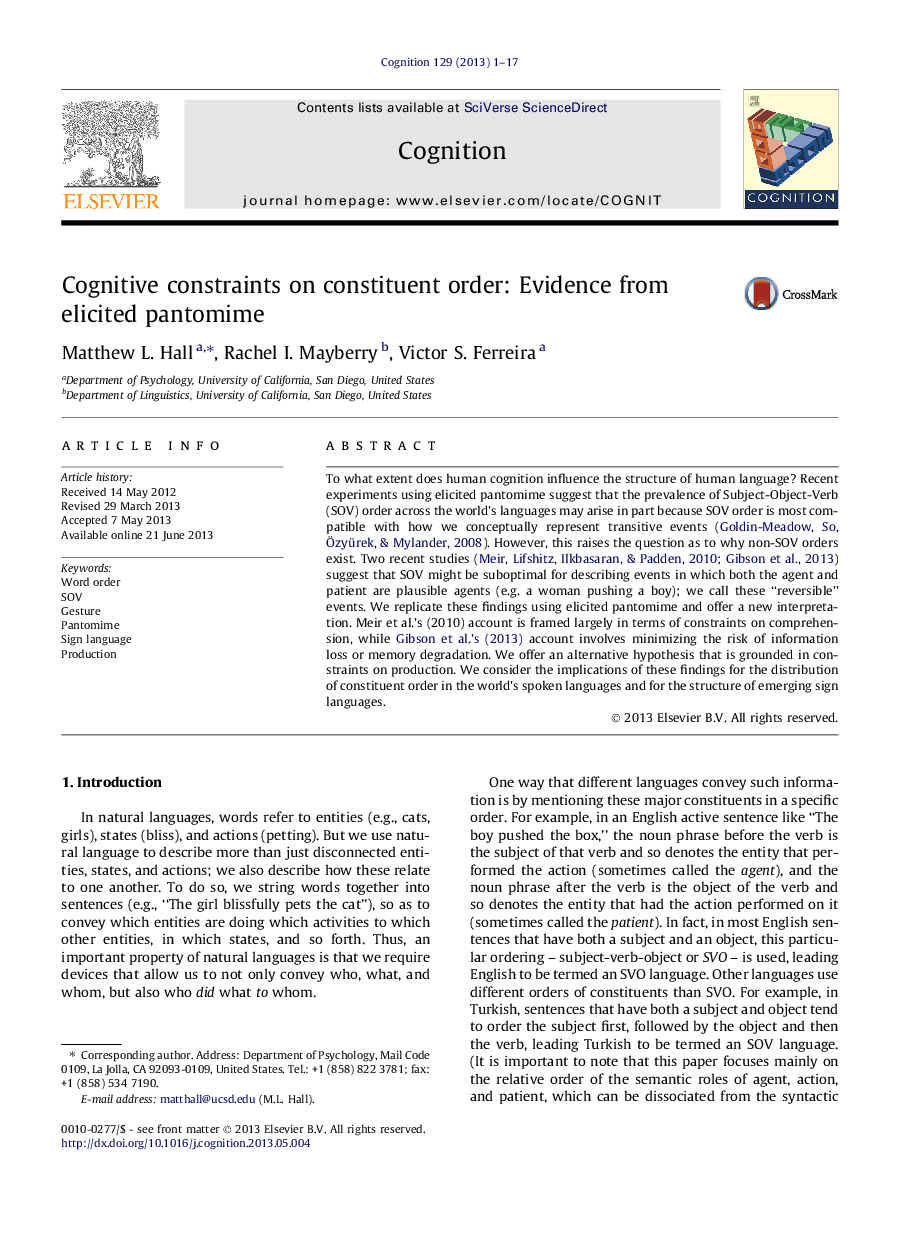| کد مقاله | کد نشریه | سال انتشار | مقاله انگلیسی | نسخه تمام متن |
|---|---|---|---|---|
| 10457686 | 921863 | 2013 | 17 صفحه PDF | دانلود رایگان |
عنوان انگلیسی مقاله ISI
Cognitive constraints on constituent order: Evidence from elicited pantomime
ترجمه فارسی عنوان
محدودیت های شناختی در مورد مؤلفه: شواهد از پاندمیم مشتق شده
دانلود مقاله + سفارش ترجمه
دانلود مقاله ISI انگلیسی
رایگان برای ایرانیان
کلمات کلیدی
موضوعات مرتبط
علوم زیستی و بیوفناوری
علم عصب شناسی
علوم اعصاب شناختی
چکیده انگلیسی
To what extent does human cognition influence the structure of human language? Recent experiments using elicited pantomime suggest that the prevalence of Subject-Object-Verb (SOV) order across the world's languages may arise in part because SOV order is most compatible with how we conceptually represent transitive events (Goldin-Meadow, So, Ãzyürek, & Mylander, 2008). However, this raises the question as to why non-SOV orders exist. Two recent studies (Meir et al., 2010, Gibson et al., 2013) suggest that SOV might be suboptimal for describing events in which both the agent and patient are plausible agents (e.g. a woman pushing a boy); we call these “reversible” events. We replicate these findings using elicited pantomime and offer a new interpretation. Meir et al.'s (2010) account is framed largely in terms of constraints on comprehension, while Gibson et al.'s (2013) account involves minimizing the risk of information loss or memory degradation. We offer an alternative hypothesis that is grounded in constraints on production. We consider the implications of these findings for the distribution of constituent order in the world's spoken languages and for the structure of emerging sign languages.
ناشر
Database: Elsevier - ScienceDirect (ساینس دایرکت)
Journal: Cognition - Volume 129, Issue 1, October 2013, Pages 1-17
Journal: Cognition - Volume 129, Issue 1, October 2013, Pages 1-17
نویسندگان
Matthew L. Hall, Rachel I. Mayberry, Victor S. Ferreira,
